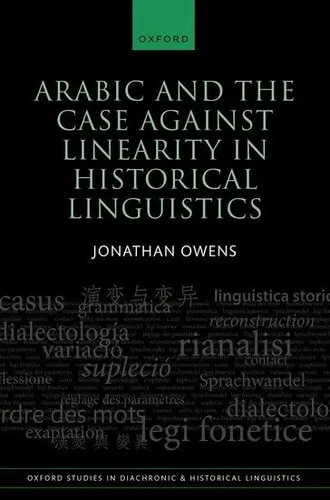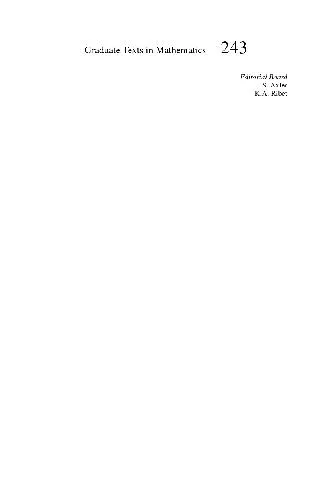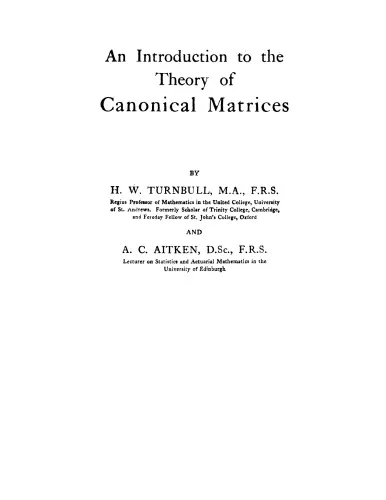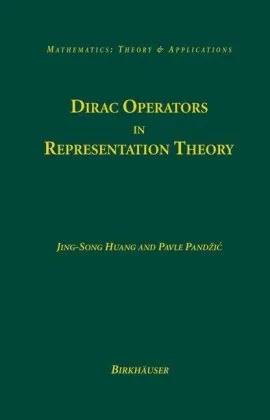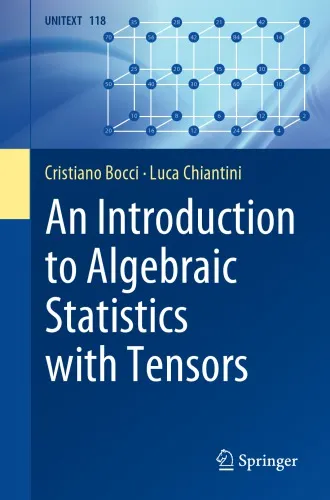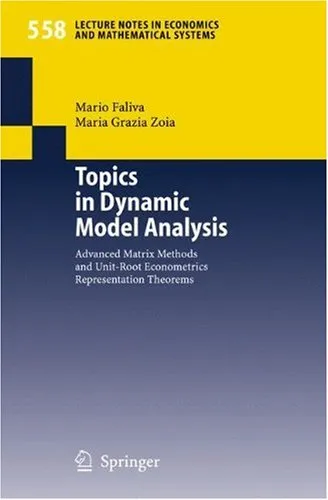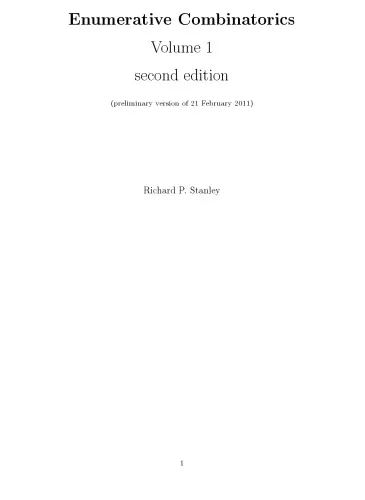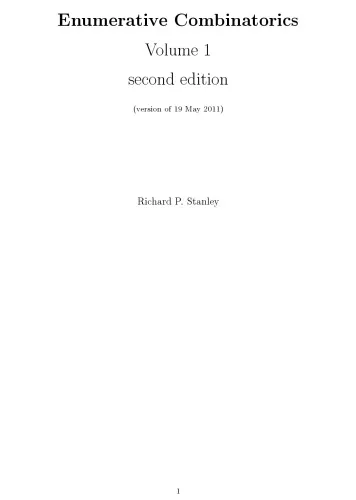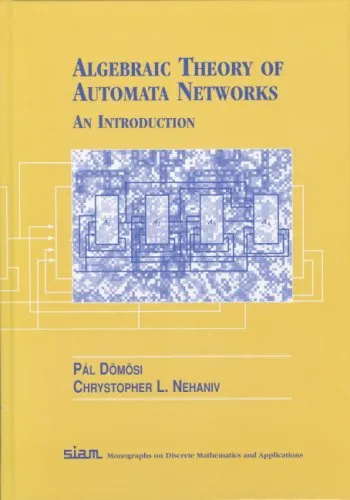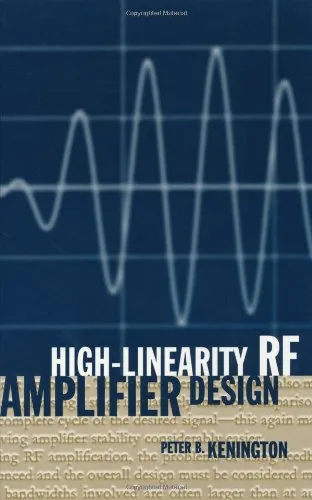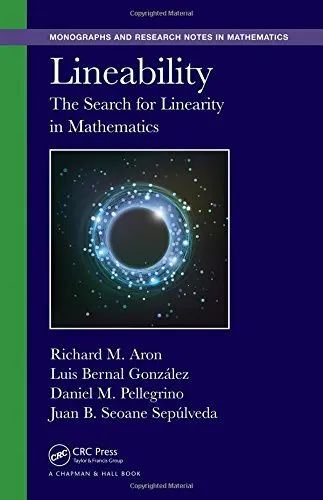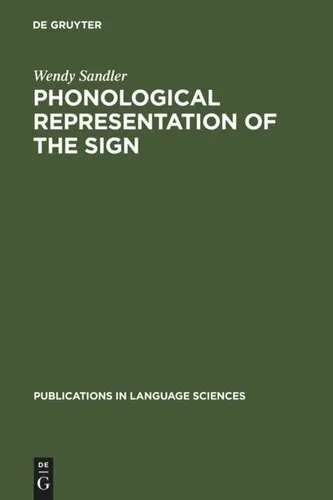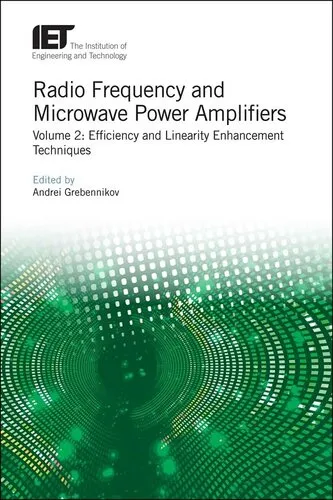Arabic and the Case against Linearity in Historical Linguistics (Oxford Studies in Diachronic and Historical Linguistics)
4.3
بر اساس نظر کاربران

شما میتونید سوالاتتون در باره کتاب رو از هوش مصنوعیش بعد از ورود بپرسید
هر دانلود یا پرسش از هوش مصنوعی 2 امتیاز لازم دارد، برای بدست آوردن امتیاز رایگان، به صفحه ی راهنمای امتیازات سر بزنید و یک سری کار ارزشمند انجام بدینکتاب های مرتبط:
خلاصهای جامع از کتاب
کتاب Arabic and the Case against Linearity in Historical Linguistics نوآوریهای اساسی در زمینه زبانشناسی تاریخی را بررسی میکند. نویسنده، جاناتان اوونز، به تحلیل چگونگی تکامل زبان عربی میپردازد و فرضیات متداول در مورد خطی بودن فرآیندهای زبانی را به چالش میکشد.
اوونز با استفاده از مثالهای متنوع از زبان عربی به عنوان یک کیس استادی، نشان میدهد که تغییرات زبانی الزاماً به صورت خطی رخ نمیدهند. وی با بررسی دقیق دادههای تاریخی، ایدئولوژیهای سنتی را که معتقدند زبانها به طور پیوسته و قابل پیشبینی پیشرفت میکنند، زیر سوال میبرد. این کتاب تأکید میکند که زبانها مملو از پیچیدگی و نوسان هستند.
نکات کلیدی
- پویایی و انعطافپذیری زبان عربی در طول تاریخ.
- انتقاد از مدلهای خطی و سنتی در زبانشناسی تاریخی.
- معرفی روشهای جدید برای مطالعه تغییرات زبانی.
- تحلیلی عمیق از تأثیرات اجتماعی، فرهنگی و ژئوپلیتیک بر زبانها.
نقل قولهای مشهور از کتاب
"زبانها مانند رودخانههای جاریاند، مسیرشان همیشه مستقیم نیست و گاهی به خاطر موانع ناهموار یا جریانهای جانبی تغییر میکنند."
"بافت تاریخی زبانها قابل کاهش به مدلهای ساده و خطی نیست. زبانها، مانند فرهنگها، متنوع و متغیرند."
چرا این کتاب مهم است
این کتاب نقشی حیاتی در تغییر نگرشها نسبت به مطالعه زبانشناسی تاریخی ایفا میکند. با تمرکز بر زبان عربی، اثری ارزشمند برای پژوهشگران و دانشجویان زبانشناسی و همچنین علاقهمندان به موضوعات مشابه، مانند تغییرات زبانی و تعاملات فرهنگی، فراهم میآورد.
به علاوه، چالشهایی که این کتاب در برابر نظریات خطی مرسوم قرار میدهد، دریچهای تازه برای کشف و مطالعه دیدگاههای پیچیدهتر و دقیقتر ارائه میدهد و کمک میکند تا نگاه ما به گذشته زبانی گستردهتر و جامعتر شود.
Introduction
Welcome to a transformative exploration into the intricacies of historical linguistics, focusing on one of the world's most profound languages—Arabic. In 'Arabic and the Case against Linearity in Historical Linguistics'—a part of the esteemed Oxford Studies in Diachronic and Historical Linguistics series—I challenge the prevailing assumptions of linearity that have long dictated the study of linguistic evolution.
Detailed Summary of the Book
This book embarks on an intellectual journey that examines the dynamic transformations of the Arabic language over centuries. Arabic serves as an ideal case study for observing how languages evolve in complex, non-linear ways, effectively debunking the myth of simple, sequential progression. Through meticulous analyses, we delve into the intricacies of dialectal variations, phonetic shifts, and syntactic developments that defy traditional linear models.
The book is comprised of several chapters, each building a case for viewing linguistic history through a non-linear lens. Historical narratives in linguistics frequently adopt a linear progression model—tracing language changes from one distinct point to another over fixed timelines. However, Arabic's vast historical records, its diverse dialects, and myriad influences from different cultures and regions offer a unique dataset that points towards non-linear patterns of change.
Key Takeaways
- The evolution of languages can often be intricately non-linear, especially exemplified through the history and evolution of Arabic.
- Linguistic changes are impacted by multifaceted socio-political, geographical, and cultural exchanges, challenging the traditional notion of sequential development.
- Arabic showcases a tapestry of influences, leading to phonetic and syntactic shifts that do not conform to conventional historical linguistic paradigms.
- A new methodological framework is needed to accurately represent and study historical linguistics with the complexity it deserves.
Famous Quotes from the Book
"Linguistic change does not walk in a straight line; it dances to the rhythm of culture and civilization."
"Arabic, in its historical breadth, is less a language of linear evolution and more a mosaic of interconnected stories."
"To embrace the history of Arabic is to see beyond the linear—it's to witness a living, breathing history full of serpentine transitions."
Why This Book Matters
In 'Arabic and the Case against Linearity in Historical Linguistics', I seek to reshape the foundational underpinnings of historical linguistic study. By turning the spotlight onto Arabic—one of the world's most spoken and historically rich languages—this book challenges scholars to reevaluate their perspectives. Understanding the non-linear nature of language evolution empowers researchers and language enthusiasts alike to appreciate the nuanced pathways that languages traverse.
This scholarly work is a call to action for the linguistic community, encouraging an embrace of complexity and a rejection of oversimplification. By confronting the limitations of linear models and advocating for a more robust understanding of linguistic phenomena, it aims to enrich not only the field of Arabic studies but the broader discourse of historical linguistics.
دانلود رایگان مستقیم
شما میتونید سوالاتتون در باره کتاب رو از هوش مصنوعیش بعد از ورود بپرسید
دسترسی به کتابها از طریق پلتفرمهای قانونی و کتابخانههای عمومی نه تنها از حقوق نویسندگان و ناشران حمایت میکند، بلکه به پایداری فرهنگ کتابخوانی نیز کمک میرساند. پیش از دانلود، لحظهای به بررسی این گزینهها فکر کنید.
این کتاب رو در پلتفرم های دیگه ببینید
WorldCat به شما کمک میکنه تا کتاب ها رو در کتابخانه های سراسر دنیا پیدا کنید
امتیازها، نظرات تخصصی و صحبت ها درباره کتاب را در Goodreads ببینید
کتابهای کمیاب یا دست دوم را در AbeBooks پیدا کنید و بخرید
1400
بازدید4.3
امتیاز0
نظر98%
رضایتنظرات:
4.3
بر اساس 0 نظر کاربران
Questions & Answers
Ask questions about this book or help others by answering
No questions yet. Be the first to ask!
